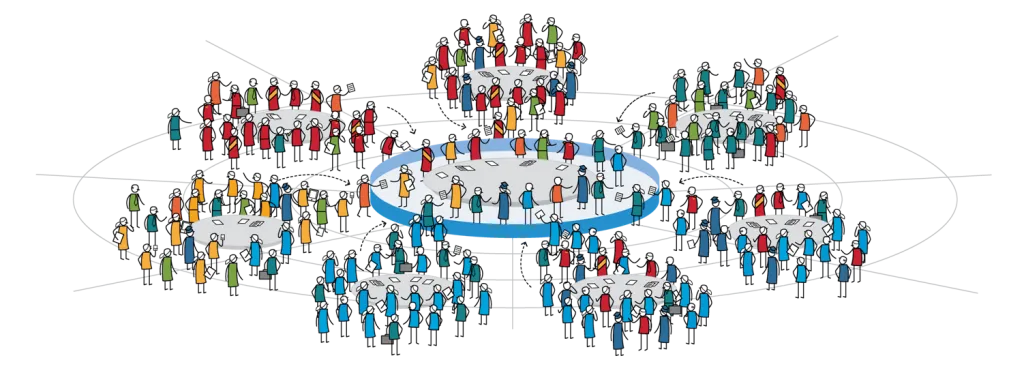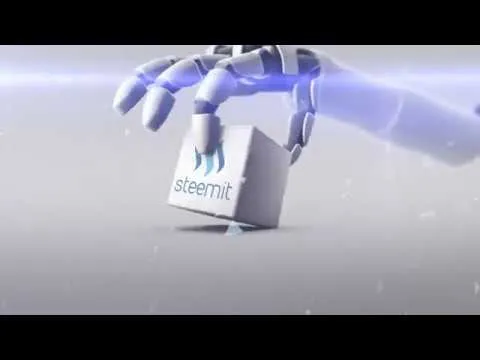
Recently, @donkeypong shared this article in a chat along with the remark:-
"In the future, political parties may be fighting about which algorithm to feed the robot president."
I thought that was both a funny and revealing comment about the nature of how things function in political spheres all around the world. First of all, there really is no difference between a robot and a human if we view ourselves as automatons, barring philosophical disputes over the notion of free will. Just like computers, we have inputs and outputs. What happens in the middle is irrelevant when it comes to end-decision and social-perception. We just make both "good" and "bad" choices.
If the usual argument is that robots will never be as smart as humans to be in any place of power.. well, most human politicians are pretty much dimwits anyway, depending on whose opinion you're listening to. In any case, the human condition as it is has always been influenced by numbers and algorithms anyway, ever since it became a meme. It's not an exaggeration. Our social structures are so technologically dependent and influenced these days that it even renders the question - "Could a Robot Be President" redundant. So in my opinion, of course the President could be a robot. Regardless, we will still carry on doing our own thing even if some crazy AI is at the top making whatever decisions it finds itself needing to make. Even all the politicians you've known could all very well be robots. Me too.

All said, I think I understand the heart of the matter - doomsday scenario is just much more likely if a robot is in place, "thanks" to the immense power that comes together with the ubiquity of technology. But as far as I'm concerned, there's no difference compared to what we have now. Because chances are, 99% of us can't control who or what goes into positions of power, as there will always be circles of concentrated power anyway. It's just a matter of what, when, where, and how. So maybe we can start asking - should a robot be president?
Or more generally, should there ever be an executive chain of order at the top? Here's where it gets tricky because humanity has been creating these positions ever since centralisation became a thing, so the reasons for them are multi-dimensional. While I'm under no delusion that any organisations tend to have power flow bias, just like the case found in Zipf's law, the more sobering approach is to find out how the game could change in the future. There are already signs of it.
“The president is a national symbol,” notes Lori Cox Han, a political science professor at Chapman University. “When something goes well or something goes really badly, we look to the president.” And in a crisis, in all those times we expect the president to do more than just make a decision, we might still want a human in charge.
by Michael Linhorst of PoliticoMagazine
Maybe we do have a tendency to follow some symbol and rely on something in times of crisis, but let's consider the powershifts that has been happening alongside the progress in information technology. If you've been spending your time and attention on the Internet, you might've known about trust-networks. These days it's not what you say about yourself anymore - it's what the network says about you. You know something revolutionary is happening when you realise that you'd rather trust some Youtuber, Redditor, and more recently, Steemian. Truth, trust, and government is on its way to becoming a complex, distributed platform.

For a good hint of this, look no further than the whitepaper release in the recent World Economic Forum, succinctly titled "Realizing the Potential of Blockchain: A Multistakeholder Approach to the Stewardship of Blockchain and Cryptocurrencies". Going through it, you will soon realise that blockchain technology is truly a common good for the world's people. This virtual resource can be optimised to suit its users through both personal and universal applications. So be a multistakeholder. Spend your time and attention in platforms that empower you.
"The future is already here — it’s just not very evenly distributed."
by William Gibson
Leadership and sovereignty is now in the process of distribution, and there's no better time to form relationships and economies with anyone on the Internet, even bots. Technology can be the answer if we start asking the right questions. Thanks for reading!

Image source: 1 - 2 - 3
Video by @the-alien